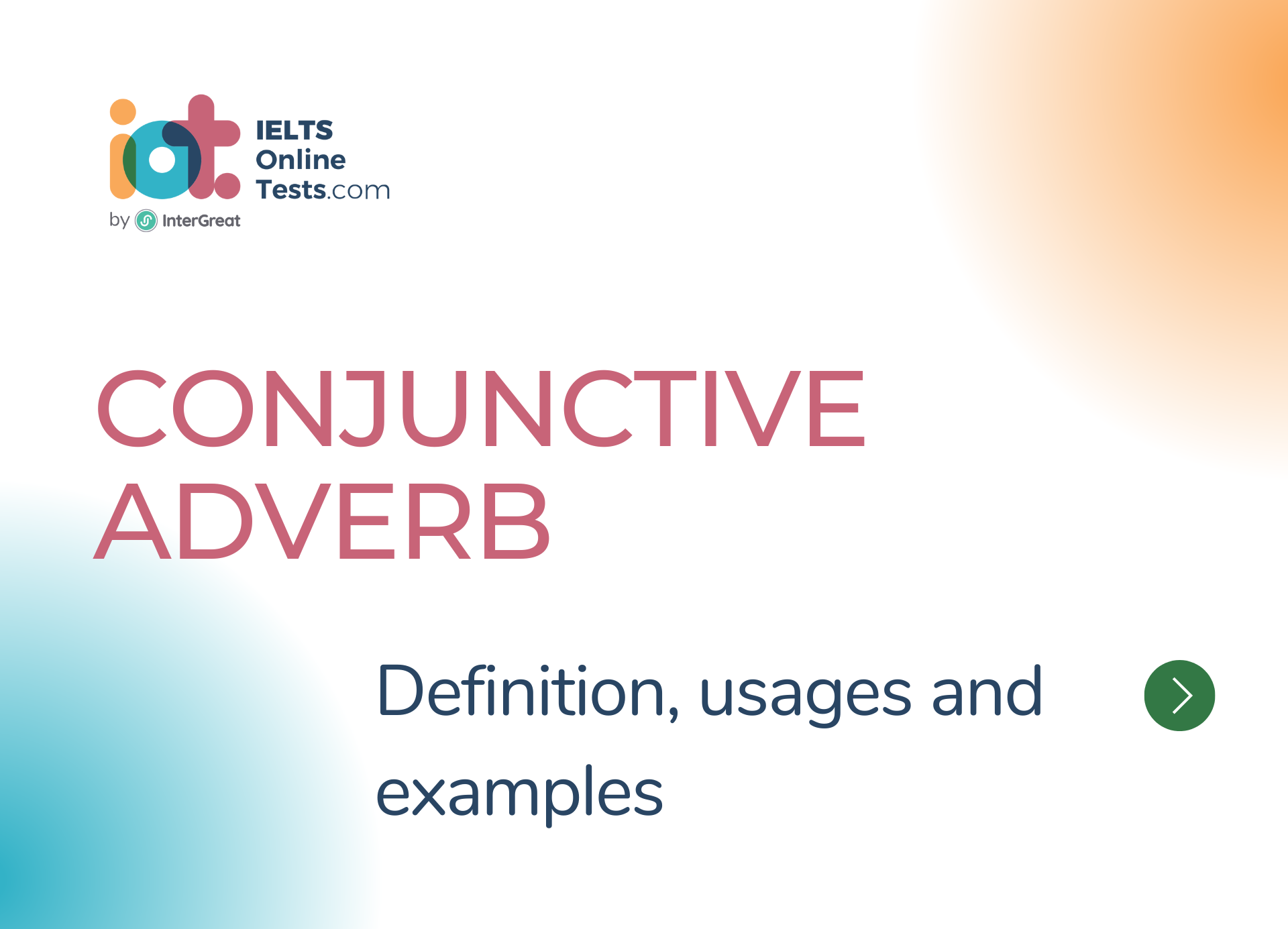
Conjunctive Adverb definition, usages and examples
A conjunctive adverb is a type of adverb that connects independent clauses or sentences. It is used to show the relationship between the two clauses or to provide additional information, such as cause and effect, contrast, comparison, time, or sequencing.
Here are some key points about conjunctive adverbs:
Usage:
- Conjunctive adverbs are used to join two independent clauses that are closely related in meaning.
- They act as a bridge between the clauses, connecting them and providing a smooth transition.
- Example:
- "She studied hard; therefore, she aced the exam."
Examples of Conjunctive Adverbs:
- "Therefore": It indicates a conclusion or result.
- "She studied hard; therefore, she earned a high score on the test."
- "However": It shows a contrast or contradiction.
- "She loves chocolate; however, she tries to limit her consumption."
- "Moreover": It adds information or emphasizes a point.
- "She is skilled in writing; moreover, she excels in public speaking."
- "Furthermore": It provides additional information or reasons.
- "The research shows promising results; furthermore, it opens up new possibilities."
- "Meanwhile": It indicates simultaneous actions or events.
- "She was busy working; meanwhile, he was enjoying a relaxing vacation."
- "Nevertheless": It shows a concession or counterpoint.
- "The weather was terrible; nevertheless, they decided to go camping."
- "Additionally": It adds more information or examples.
- "She has great communication skills; additionally, she is a skilled problem solver."
- "Consequently": It shows cause and effect.
- "He didn't study for the exam; consequently, he failed to pass."
- "Similarly": It indicates similarity or comparison.
- "She enjoys reading; similarly, her brother has a passion for literature."
- "Meanwhile": It shows actions or events happening at the same time.
- "She was cooking dinner; meanwhile, he was setting the table."
- "Therefore": It indicates a conclusion or result.
Placement and Punctuation:
- Conjunctive adverbs are typically placed at the beginning or middle of a sentence, separated by commas.
- However, when they appear at the end of a sentence, they are usually preceded by a semicolon.
- Example:
- "He loves playing basketball; however, he doesn't enjoy watching it."
Conjunctive adverbs help to establish logical connections and enhance the flow of ideas in a text. They provide clarity and coherence by indicating relationships between independent clauses and adding nuances of meaning. Proper usage of conjunctive adverbs can greatly improve the organization and coherence of your writing.




